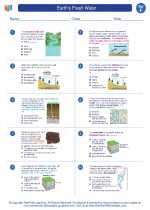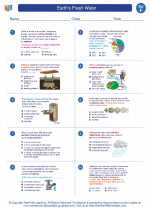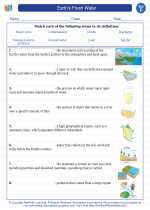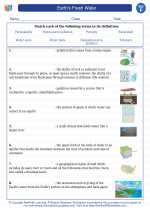Sensory Organs
Sensory organs are specialized body parts that enable organisms to receive information about the environment through the senses of sight, hearing, smell, taste, and touch. These organs provide essential input to the nervous system, allowing organisms to perceive and respond to their surroundings.
Types of Sensory Organs
There are several types of sensory organs that are responsible for different senses:
- Eyes (Vision): The eyes contain photoreceptor cells that detect light and help us see the world around us.
- Ears (Hearing): The ears contain specialized structures that detect sound waves and enable us to hear.
- Nose (Smell): The nose contains olfactory receptors that detect airborne molecules, allowing us to sense different odors.
- Tongue (Taste): The tongue contains taste buds that detect different flavors such as sweet, sour, salty, and bitter.
- Skin (Touch): The skin contains sensory receptors that detect pressure, temperature, and pain, allowing us to sense touch and feel the environment.
Importance of Sensory Organs
Sensory organs play a crucial role in helping organisms gather information about their surroundings. They allow for the detection of potential dangers, the identification of food and mates, and the overall experience of the world through various senses.
Study Guide
Here are some key points to remember when studying sensory organs:
- Define sensory organs and their function.
- List the different types of sensory organs and the senses they are associated with.
- Explain the importance of sensory organs in perceiving the environment.
- Describe the structure and function of each type of sensory organ.
- Discuss the role of sensory organs in the nervous system and overall behavior of organisms.
◂Science Worksheets and Study Guides Sixth Grade. Earth's Fresh Water
Study Guide Earth's Fresh Water
Earth's Fresh Water  Worksheet/Answer key
Worksheet/Answer key Earth's Fresh Water
Earth's Fresh Water  Worksheet/Answer key
Worksheet/Answer key Earth's Fresh Water
Earth's Fresh Water  Worksheet/Answer key
Worksheet/Answer key Earth's Fresh Water
Earth's Fresh Water  Vocabulary/Answer key
Vocabulary/Answer key Earth's Fresh Water
Earth's Fresh Water  Vocabulary/Answer key
Vocabulary/Answer key Earth's Fresh Water
Earth's Fresh Water 

 Worksheet/Answer key
Worksheet/Answer key
 Worksheet/Answer key
Worksheet/Answer key
 Worksheet/Answer key
Worksheet/Answer key
 Vocabulary/Answer key
Vocabulary/Answer key
 Vocabulary/Answer key
Vocabulary/Answer key

The resources above cover the following skills:
EARTH AND SPACE SCIENCE
Earth and Human Activity
Implement scientific principles to design processes for monitoring and minimizing human impact on the environment (e.g., water usage, including withdrawal of water from streams and aquifers or construction of dams and levees; land usage, including urban development, agriculture, or removal of wetlands; pollution of air, water, and land).